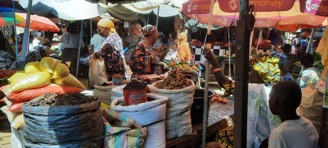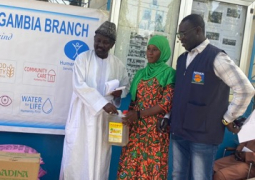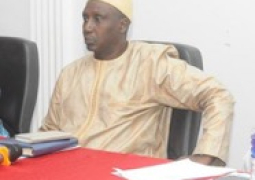
Speaking to the reporter, Aja Binta expressed that it's not their intention to sell their food products at such high prices. If it were up to them, they would sell them at a more reasonable or even give away prices, considering that their customers are fellow Gambians facing similar struggles. However, they have no choice as they also need to make a small profit to feed their families.
According to Aja Binta, The Gambia imports a lot of food, and this heavy dependence on imports contributes to the price increase in the country. It seems like The Gambia imports almost everything, from onions and potatoes to tomatoes, rice, beans, and even fish, despite having a river here. It's a sad reality, but it needs to be acknowledged.
Ramatouille Jallow believes that what The Gambia needs is price control on imported food and locally grown agricultural products. Without such measures, things will continue to be very expensive. It's disheartening to see the same cup of sugar or rice being sold at different prices, even though they were acquired at the same cost. Due to the lack of price control, some shopkeepers take advantage of the situation, aiming to become millionaires at the expense of poor people.
According to Lamin Ceesay, the only solution to end this is by returning to the land. We have a vast arable land that is perfect for agriculture. However, many people are hesitant to venture into agriculture, which contributes to the difficulties we are facing. I don't blame everyone, but some people deserve blame. Last year, the government failed to purchase the groundnuts from the farmers, despite promising to buy a ton at 38,000. This alone is discouraging and can make someone give up on farming.
Awa Saidy, a vegetable seller, wants to convey a message to the president. She emphasises that the people of The Gambia are suffering, and life is becoming increasingly challenging. House rent is expensive, the cost of goods keeps rising, and the government is forcing them to leave their small selling places, leaving them wondering where they will provide for their families. The increasing crime rate and desperation are a result of the high cost of living and lack of employment. A job alone is not enough to sustain oneself unless you have family or friends in America or Europe who can assist you.
Awa pleads for the president's help, as the situation is becoming unbearable.
Read Other Articles In National News

Humanity First- The Gambia extends support to fire victims in WCR
Feb 8, 2023, 12:37 PM



